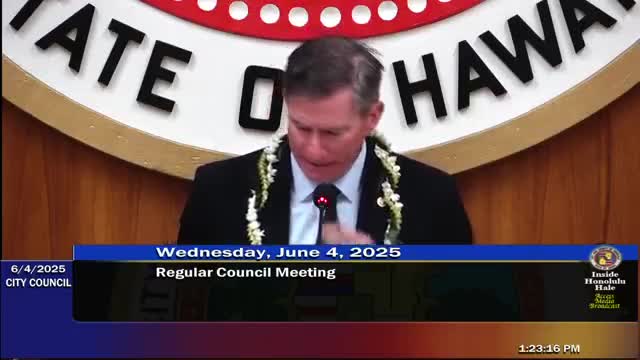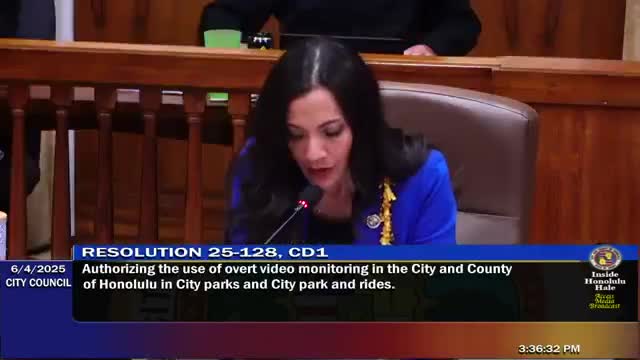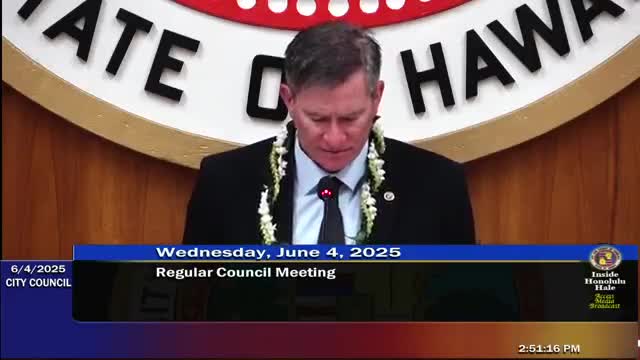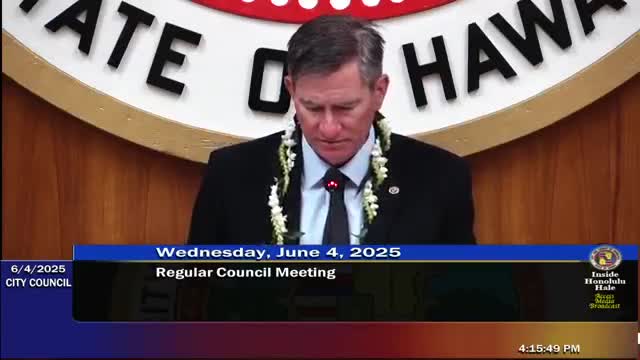Article not found
This article is no longer available. But don't worry—we've gathered other articles that discuss the same topic.

Council members debate operating-budget floor drafts after chair’s proposal to set aside general-fund cash for sewer activities

Council adopts overt video‑monitoring pilot with privacy guardrails after committee amendment

Council amends HPD transfer: reduces proposed transfer and schedules further consideration after staffing questions

